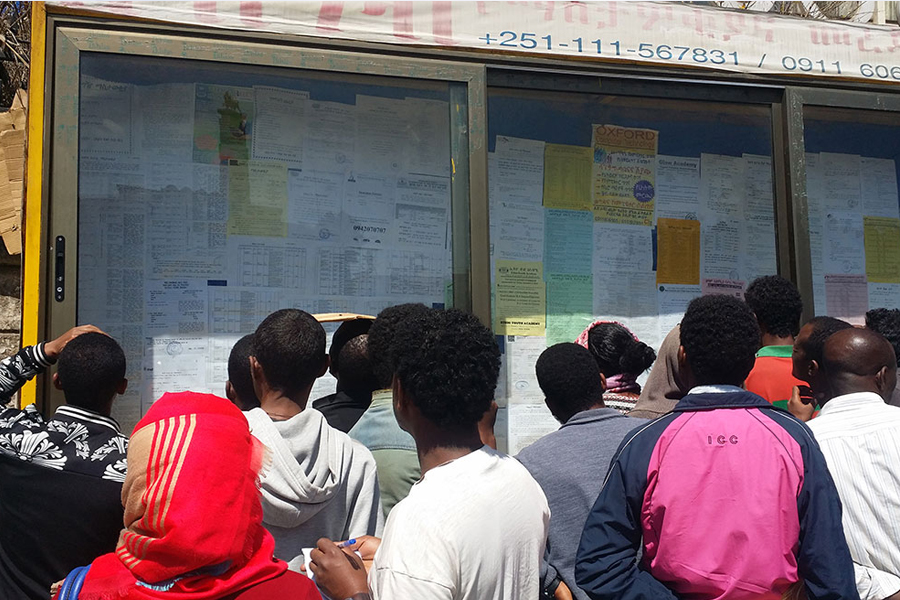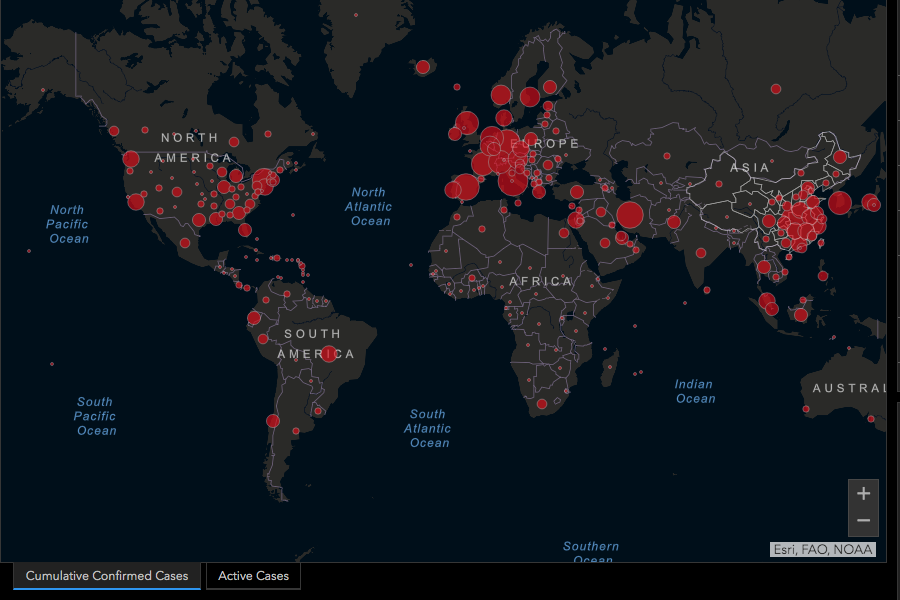
Dec 16 , 2023
By Edris Hussien
The intertwining issues of foreign exchange dynamics, trade practices, and tax collection demonstrate the complexity of the current economic landscape. A comprehensive solution demands addressing both foreign exchange constraints and implementing measures to streamline and fortify the tax collection process. By doing so, Ethiopia can foster economic stability, encourage fair trade practices, and create an environment conducive to sustainable growth, argued Edris Hussien.
Ethiopia's economic landscape is navigating a turbulent period, characterised by a severe foreign exchange (forex) shortage that presents severe hardships to its stability and growth prospects.
At the core of this crisis lies a substantial gap between the official exchange rate and the parallel market rate for the Birr against major currencies like the US Dollar. The official rate exchanged last week was nearly 57 Br for a Dollar, while the parallel market rate hovers around 110 Br. The significant disparity signals the overvaluation of the Birr and poses a substantial 'implicit tax' on exporters, diminishing their competitiveness in the global market.
The consequences of this forex crisis are particularly evident in the coffee industry, a vital sector of the economy. Reports indicate that coffee exporters are defaulting on contracts due to the disparity between international prices for the beans and their corresponding domestic prices. The issue is further exacerbated by Birr's persistent overvaluation, which impacts exports' viability. It is also compounded by the mandatory requirement for exporters to surrender their foreign exchange earnings at the official rate, limiting their ability to leverage more favourable market rates and placing them at a competitive disadvantage in the global market.
The overvalued currency acts as an 'implicit subsidy' for imports. Businesses and importers accessing forex at the official exchange rates gain advantages, exacerbating trade imbalances and weakening the domestic market. This dynamic exposes the complexity of forex challenges and calls for a comprehensive strategy to address the economic implications.
In response to the forex crunch, the National Bank of Ethiopia (NBE) has implemented forex rationing, which presents significant challenges for local manufacturers and importers who rely heavily on imported inputs. The dilemma resonates across diverse industries, impacting tax collection and triggering a chain reaction in the economy. The problem is particularly acute for companies engaged in wholesale trade, which are unable to secure the required foreign exchange through official channels and are compelled to resort to the parallel market.
Importers declare the value of their imports before customs officers based on the amount of foreign currency obtained from the official market. This strategy has economy-wide repercussions, including complications in the tax collection process within the domestic market. Understating the value of imports makes it difficult for customs officers to maintain accurate tax records and monitor trade activities.
International financial institutions advocate for the devaluation of the Birr as a potential remedy to narrow the gap between the official and parallel market rates—however, global experiences, such as Nigeria's, caution that devaluation alone may not suffice. A comprehensive strategy that considers economic realities, external factors, and political stability is essential for success. The short-term result of currency devaluation on domestic prices warrants careful consideration.
The impact on domestic prices, spare crucial government imports like fuel and fertilisers, is likely to be marginal. This is perhaps because the pricing of these goods in the local market is determined by the parallel market exchange rate, rather than the official rates, even if importers source their foreign exchange from the official markets.
There might be a transient response in domestic prices following the enforcement of devaluation measures. The fluctuation could stem from the anticipation that accompanies the central bank's currency devaluation, leading to speculation over the increase in the parallel market rates. As the central bank initiates a devaluation, it sets in motion a ripple effect. The parallel market, operating more fluidly and responsively, tends to mirror these changes more promptly than the official rates. This prompts local businesses to recalibrate their pricing strategies in anticipation of potential shifts in the market dynamics. The short-term price reactions can be attributed to the psychology of market participants.
Currency devaluation creates an environment of uncertainty, prompting both consumers and businesses to adjust their behaviour in response to perceived changes in the economic landscape. Consumers may anticipate an increase in the cost of imported goods, leading to a temporary surge in demand as they seek to secure purchases at existing prices.
Simultaneously, businesses may adjust their pricing models to hedge against potential future increases in import costs, contributing to the observed fluctuations in domestic prices. While the overall impact on local prices may be subdued in the long run, these short-term reactions show the interconnectedness of currency dynamics, market psychology, and pricing strategies within the complex economic ecosystem.
The implication of currency devaluation on public debt, particularly external debt, requires careful review, considering the increased cost of servicing external debt. A pragmatic approach to devaluation is inevitable for economic trajectory. Success depends on addressing political instability, adopting a comprehensive strategy, and drawing valuable lessons from global experiences. Ethiopia stands at a crucial juncture where a well-timed and carefully executed strategy can harness the benefits of devaluation, ensuring sustainable economic growth.
PUBLISHED ON
Dec 16,2023 [ VOL
24 , NO
1233]


Viewpoints | Apr 02,2022

Fortune News | Aug 11,2024

My Opinion | Jun 24,2023

Viewpoints | Jul 17,2022

Agenda | Jul 22,2023

Viewpoints | Dec 10,2018

Fortune News | Jan 11,2020

Commentaries | May 18,2019

Digital First | Mar 13,2020

Commentaries | May 25,2019

My Opinion | 132151 Views | Aug 14,2021

My Opinion | 128561 Views | Aug 21,2021

My Opinion | 126482 Views | Sep 10,2021

My Opinion | 124091 Views | Aug 07,2021





Dec 22 , 2024 . By TIZITA SHEWAFERAW
Charged with transforming colossal state-owned enterprises into modern and competitiv...

Aug 18 , 2024 . By AKSAH ITALO
Although predictable Yonas Zerihun's job in the ride-hailing service is not immune to...

Jul 28 , 2024 . By TIZITA SHEWAFERAW
Unhabitual, perhaps too many, Samuel Gebreyohannes, 38, used to occasionally enjoy a couple of beers at breakfast. However, he recently swit...

Jul 13 , 2024 . By AKSAH ITALO
Investors who rely on tractors, trucks, and field vehicles for commuting, transporting commodities, and f...

Jul 12 , 2025
Political leaders and their policy advisors often promise great leaps forward, yet th...

Jul 5 , 2025
Six years ago, Ethiopia was the darling of international liberal commentators. A year...

Jun 28 , 2025
Meseret Damtie, the assertive auditor general, has never been shy about naming names...

Jun 21 , 2025
A well-worn adage says, “Budget is not destiny, but it is direction.” Examining t...

Jul 13 , 2025 . By YITBAREK GETACHEW
The Addis Abeba City Revenue Bureau has introduced a new directive set to reshape how...

Jul 13 , 2025 . By BEZAWIT HULUAGER
Addis Abeba has approved a record 350 billion Br budget for the 2025/26 fiscal year,...

Jul 13 , 2025 . By RUTH BERHANU
The Addis Abeba Revenue Bureau has scrapped a value-added tax (VAT) on unprocessed ve...

Jul 13 , 2025 . By NAHOM AYELE
Federal lawmakers have finally brought closure to a protracted and contentious tax de...